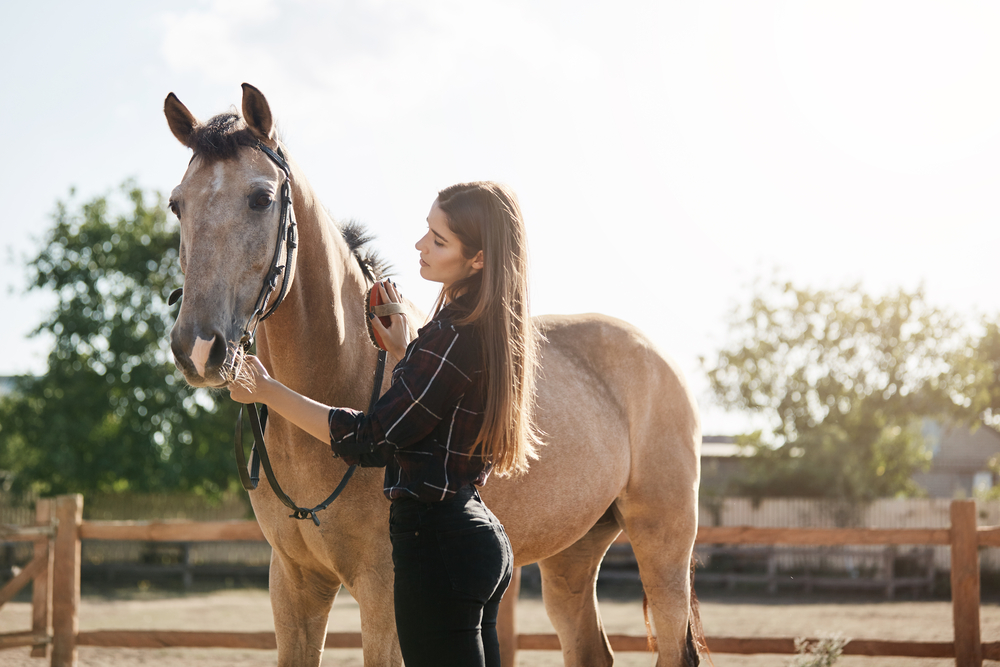How to reduce heat stress in horses
In summer it can be difficult to distinguish between regular fatigue and sweatiness from dangerous heat stress in horses.
PH Winterton will tell you what to look out for and how best to safeguard your horse’s well-being for this blog.
Every summer we are reminded that sunny weather can be difficult for horses, with them having to expend considerable energy to keep cool as temperatures rise.
This doesn’t mean you can’t enjoy your favourite equestrian activities on warmer days. You will need to take precautions and be vigilant for tell-tale signs of heat stress.
Extra care is also required when transporting horses that are kept in dry lots or paddocks with little shade. Heat stress for horses ranges from poor performance to potentially fatal heatstroke. The progression through the stages of heat stress can be swift, so you will need to recognise them and intervene when spotted.
Stage 1 – Dehydration
Anytime a horse sweats they lose fluids, first from his bloodstream, then from his gut and the spaces between cells. If he continues to perspire, fluid will be eventually drawn from within the cells. If the horse becomes moderately hydrated, it will need access to water to help recover.
In some instances, overexertion, illness or severe dehydration will prevent a horse from taking insufficient water to compensate for fluid losses.
Two simple tests can be used to identify dehydration –
The skin-pinch test can be carried out by grasping a fold of skin at the shoulder point and releasing it. If the horse is well hydrated, the skin will snap back into place in less than a second, whereas the longer it takes for the skin to flatten will reveal a greater level of dehydration.
However, skin elasticity varies among horses, so it is best to learn what is normal for your resting horse and fully hydrated.
For the capillary refill test, press gently on the horse’s gum just above an upper incisor and take note of how long it takes for the pink colour to return to the blanched spot. Two seconds or less is normal, whereas longer times indicate dehydration.
Other telltale signs of dehydration include –
- Dark urine
- A body temperature elevated by a degree or two
- A dull expression or behaviour
When a horse works too long without replenishing fluids and critical electrolytes, he could develop synchronous diaphragmatic flutter or exertional rhabdomyolysis.
Stage 2 – Heat Exhaustion
Once a horse starts to dehydrate, his capacity to control his body temperature diminishes with his main cooling system, sweating, starting to fail and body temperature increases considerably. He will enter a danger zone, where psychological damage can occur, known as heat exhaustion.
Warning signs for heat exhaustion include a reduction or cessation of perspiration or thickening of sweat while the skin remains hot to the touch. All of these factors are indications that his fluid reserves are quite low.
Other indications of heat exhaustion include –
- A skin punch taking longer than six seconds to flatten or it does not flatten at all
- Dark and/or discoloured gums and mucous membranes
- A capillary refill time of several seconds or longer
- An elevated but weak and irregular pulse, which remains high despite rest diminished or absent intestinal sounds
- Depressed posture, with lower head carriage
- Rapid shallow breathing or deep gulping air intake immediately after exercise
Stage 3 – Heat Stroke
Heat exhaustion can advance to heat stroke quickly, with the consequences being quite serious.
The brain is extremely vulnerable to elevated heat and will be one of the first organs to show effects. It contains lots of protein plus it is the site of many crucial enzyme reactions that influence the whole body.
Signs of heatstroke, depending on the nature and extent of any brain damage, can include –
- Stumbling or difficulty moving
- Anxious, irrational or erratic behaviour
- Depressed, disorientated or oblivious mannerism collapse
If you think your horse is developing heat stroke, call a vet immediately and take the necessary measures to cool your horse quickly.
Get in touch with any questions
If you have any more questions about reducing heat stress for horses, please do not hesitate to contact us now. PH Winterton are the leading provider of equine bedding and biomass fuel for customers all over the country.

